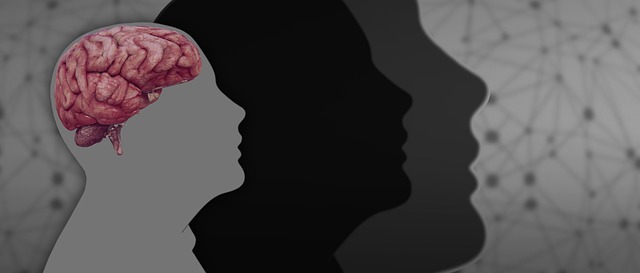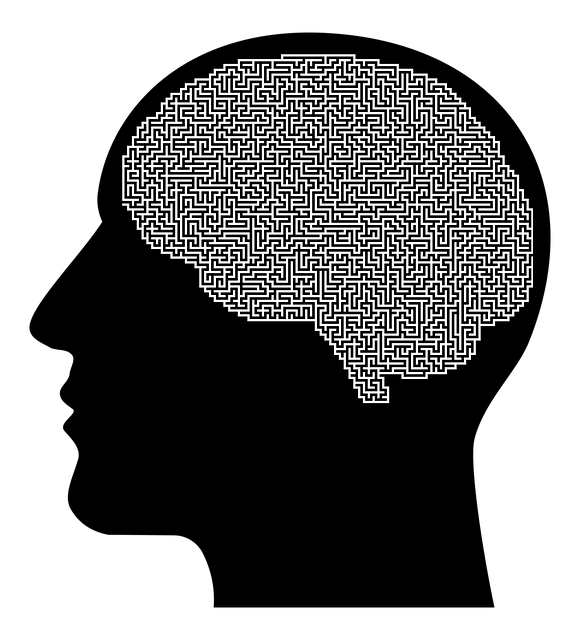Mental wellness is paramount for overall well-being, and early recognition of distress is key. Arvada Dissociative Disorder Therapy offers specialized tools like empathy-building and risk management planning to help individuals with complex conditions such as Dissociative Identity Disorder (DID). Through evidence-based approaches like CBT and psychodynamic therapy, this therapy facilitates healing from past traumas, boosts self-esteem, and promotes emotional well-being. Building resilience through personalized coping strategies and cultural sensitivity in mental healthcare ensures effective anxiety relief and mental health policy advocacy.
Mental wellness is a cornerstone of overall health, influencing how we think, feel, and act. In this comprehensive guide, we explore vital aspects of mental wellness promotion, with a specific focus on understanding and addressing dissociative disorders in Arvada. From identifying symptoms to the transformative power of therapy, we delve into building resilience and effective coping strategies for long-term well-being. By recognizing the importance of mental health, we can foster stronger, more resilient communities.
- Understanding Mental Wellness and Its Importance
- Identifying and Addressing Dissociative Disorders
- The Role of Therapy in Promoting Healing and Recovery
- Building Resilience and Coping Strategies for Long-term Well-being
Understanding Mental Wellness and Its Importance

Mental wellness is a vital aspect of overall well-being, encompassing our emotional, psychological, and social health. It involves the ability to cope with life’s challenges, manage stress, and maintain a sense of inner peace and contentment. Promoting mental wellness is essential for fostering resilience and enhancing one’s quality of life. In today’s fast-paced world, where stress and anxiety are prevalent, recognizing the signs of mental distress and taking proactive measures is crucial.
Arvada Dissociative Disorder Therapy offers valuable tools and strategies to support individuals in navigating their mental health journeys. By implementing empathy-building techniques, mental health professionals can create a safe space for clients to express their feelings and experiences. Additionally, risk management planning is essential to ensure the well-being of both clients and practitioners, preventing burnout, which is a significant concern in the field. These approaches contribute to a comprehensive understanding of mental wellness promotion, allowing individuals to thrive and lead fulfilling lives.
Identifying and Addressing Dissociative Disorders

Dissociative disorders, often overlooked aspects of mental health, can significantly impact an individual’s emotional well-being promotion techniques and overall quality of life. These complex conditions, such as Dissociative Identity Disorder (DID), involve a disconnection from reality, memories, or identity. The symptoms can range from brief dissociative episodes to more severe cases where individuals experience multiple distinct personalities. Arvada dissociative disorder therapy offers hope for those struggling with these issues.
Early identification and appropriate trauma support services are crucial in addressing dissociative disorders. Therapy focuses on improving communication strategies between the different parts of the individual’s personality, helping them integrate and regain a sense of control. Through specialized techniques, therapists facilitate the expression and understanding of repressed memories or emotions, providing much-needed support for their emotional well-being promotion.
The Role of Therapy in Promoting Healing and Recovery

Therapy plays a pivotal role in promoting mental wellness and facilitating healing from various conditions, including Arvada dissociative disorder therapy. Professional counseling offers a safe and structured environment where individuals can explore their thoughts, feelings, and past traumas. Through therapeutic processes such as cognitive behavioral therapy (CBT) and psychodynamic therapy, patients gain valuable insights into the root causes of their struggles. This awareness is crucial for developing effective coping mechanisms and fostering positive change.
Effective communication strategies, encouraged within therapy sessions, empower individuals to express themselves openly, enhancing self-esteem improvement. The therapeutic relationship also supports emotional healing processes by providing a supportive connection outside of one’s support network. Over time, regular sessions can help individuals regain control over their lives, improve their overall mental wellness, and achieve lasting recovery.
Building Resilience and Coping Strategies for Long-term Well-being

Building resilience is a cornerstone of long-term mental wellness promotion. It equips individuals with the ability to navigate life’s challenges and setbacks, fostering a sense of empowerment. Through therapeutic approaches like Arvada Dissociative Disorder Therapy, professionals help clients develop coping strategies tailored to their unique experiences. This personalized care not only addresses immediate concerns but also strengthens their overall resilience, enabling them to face future adversities head-on.
The process involves encouraging self-awareness, teaching effective stress management techniques, and promoting healthy coping mechanisms. By integrating these practices into daily routines, individuals gain better control over their emotional well-being. Additionally, Cultural Sensitivity in Mental Healthcare Practice plays a vital role in ensuring that therapeutic interventions are inclusive and respectful of diverse backgrounds, enhancing the effectiveness of Anxiety Relief strategies and contributing to broader Mental Health Policy Analysis and Advocacy efforts.
Mental wellness is a multifaceted aspect of overall health, and promoting it involves understanding various conditions like dissociative disorders and implementing effective strategies. As shown by research on Arvada dissociative disorder therapy, accessing specialized treatment can significantly aid in healing and recovery. Building resilience and adopting coping strategies are key to long-term mental wellness. By integrating these practices into daily life, individuals can navigate challenges more effectively, fostering a sense of balance and well-being that promotes a happier, healthier lifestyle.














